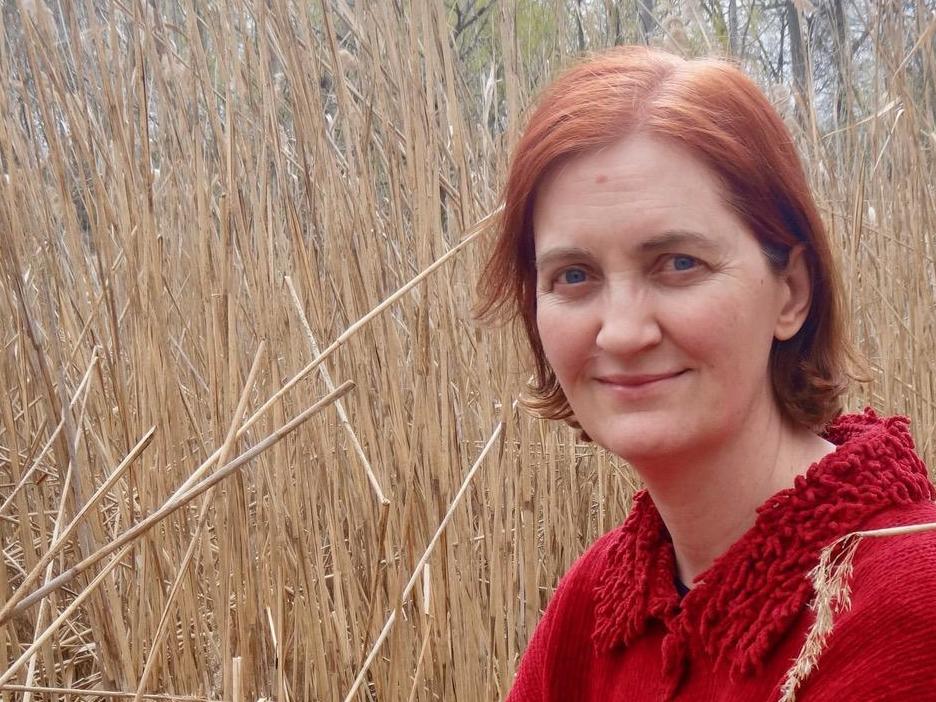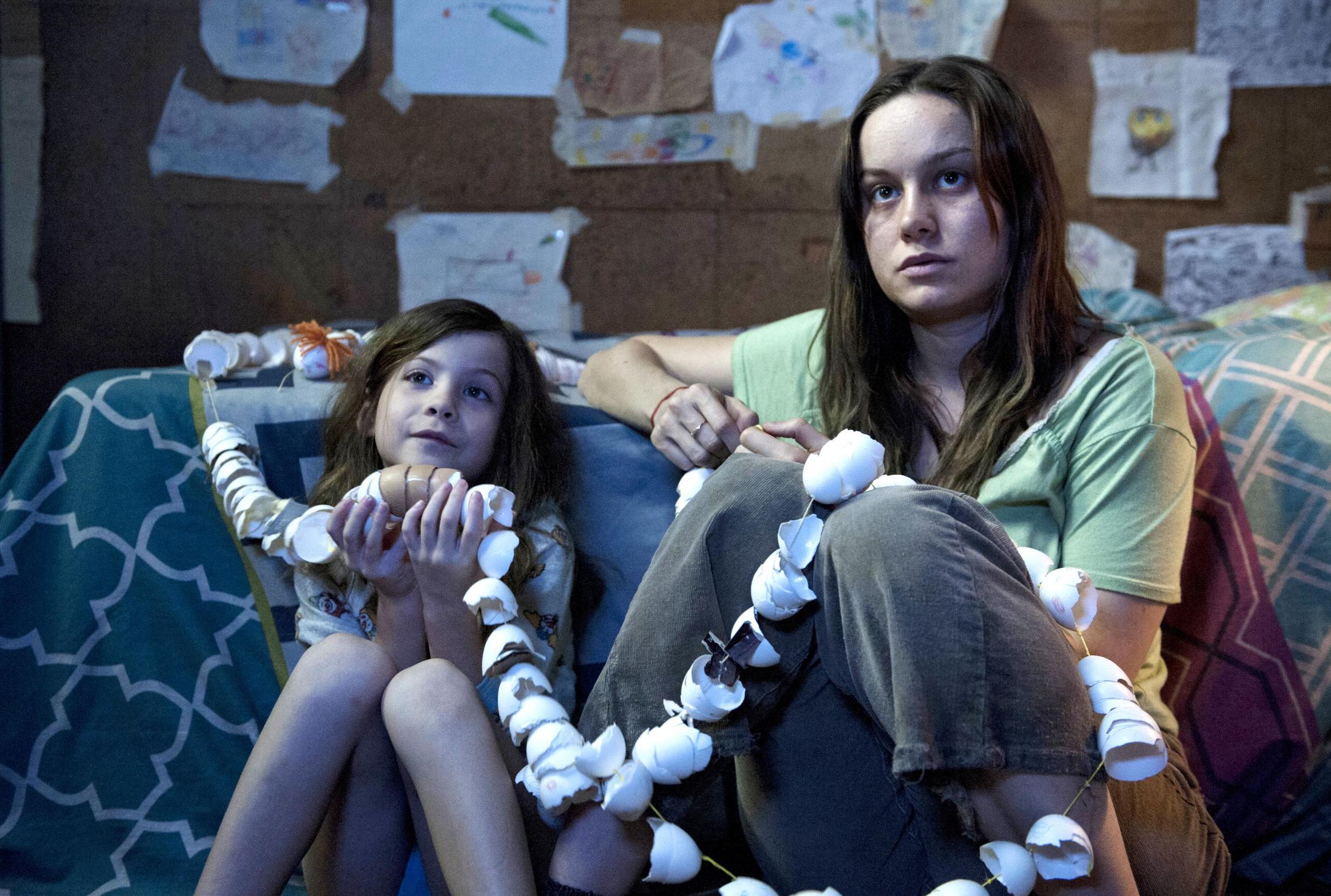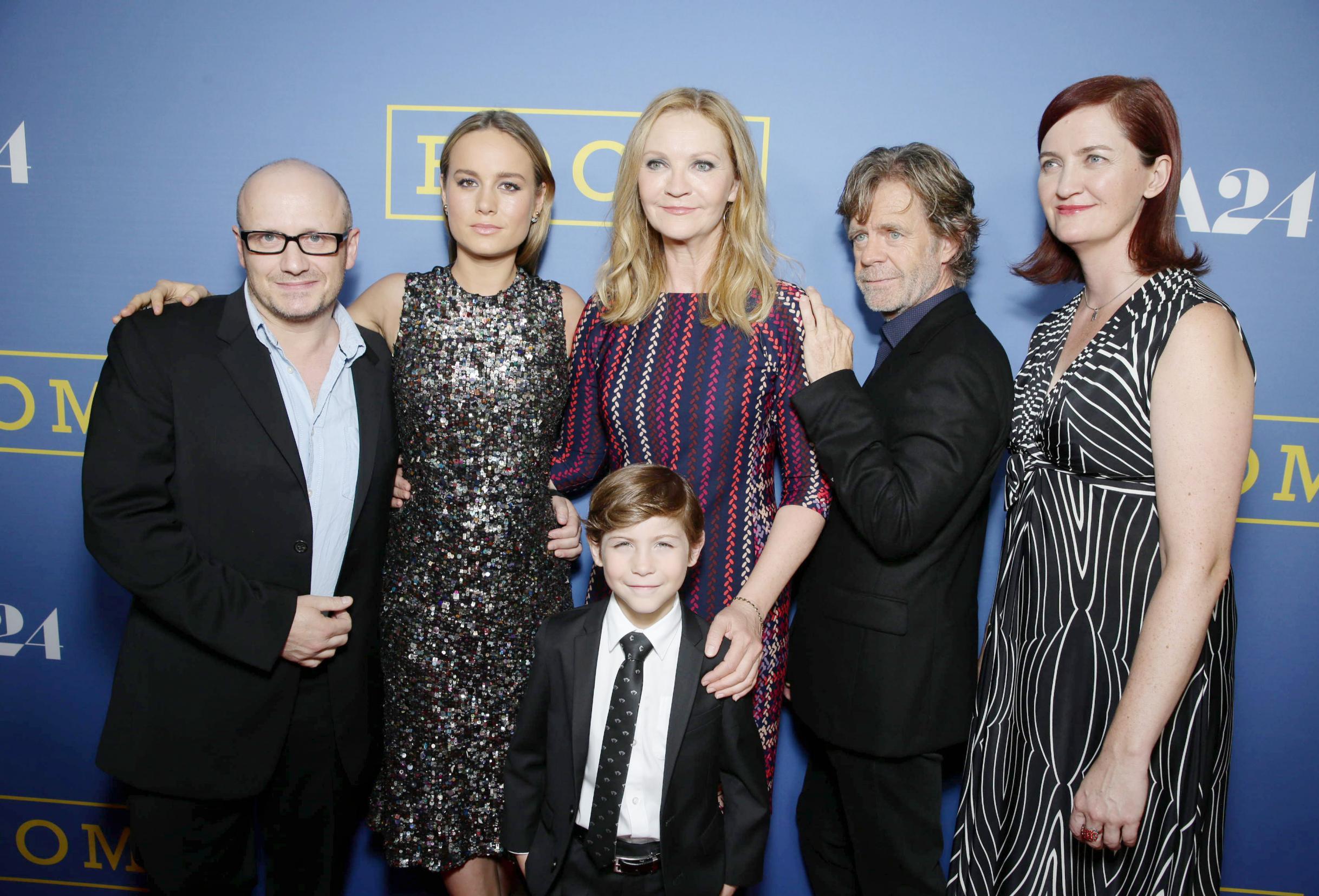Emma Donoghue: ‘I’ve been very out from the start – it’s let me contribute to the cultural visibility of women who love women’
The author of Room talks to Charlotte Cripps about childbirth, sperm donors, pandemics and her latest novel ‘The Pull of the Stars’


Emma Donoghue never believed she’d be a mother. “When I was growing up in Dublin, I thought that because I was gay and choosing to follow my heart, I clearly wouldn’t be having kids,” says the Irish-Canadian writer, who is best known for her 2010 literary hit Room. “I just felt, ‘Oh it’s two different tracks.’”
It wasn’t. Donoghue has two children now – 16-year-old Finn and 13-year-old Una – with her partner Christine Roulston. Both were conceived using an anonymous sperm donor. “In my experience, when you have a slightly unusual family story to tell the kids, if you just get in there early enough, they don’t raise an eyebrow,” says the 50-year-old, speaking cheerily over Zoom – her flame-coloured hair no less striking over webcam – from her home in Ontario, Canada. “If you told kids that you had flown to Mars and brought them back, they wouldn’t mind, as long as you were happy about it.”
But childbirth wasn’t easy. After the birth of Finn, Donoghue suffered a potentially life-threatening complication. “Like many women, I had just one thing go wrong: my placenta wouldn’t come out,” she says. “So a doctor rushed in and literally with bare hands got it out of me. It was all over 15 minutes later, and afterwards I realised, ‘Oh my god, that’s the sort of thing that kills mothers if they are in situations where there isn’t a good healthcare system.’”
It’s an experience Donoghue drew from for her new book, The Pull of the Stars. A lesbian love story, it’s also about childbirth during the influenza pandemic of 1918. “I wanted to pay tribute to the nurses, doctors, and midwives who get you through that extraordinary frightening day,” says Donoghue.
Like Room, the story of a young woman held captive in an 11ft x 11ft room with her five-year-old son, The Pull of the Stars “packs a lot into a small space”. It might not be quite as unbearably claustrophobic as Room – which was Booker shortlisted and adapted by Donoghue into the 2015 Oscar-nominated film – but it’s set over three intense days in the tiny, dark maternity ward of an understaffed Dublin hospital. Nurse Julia Power and her new volunteer helper Bridie Sweeney help to save sick expectant mothers who are quarantined together at the height of the Great Flu. A doctor, Kathleen Lynn, who is on the run from the police, is also thrown into the mission.

With all the hand washing and coughing, it’s an eerily timely novel – although Donoghue wrote it before the outbreak of Covid-19. “It was worse in 1918 – they had no decent medicines, no ventilators,” says Donoghue. “But you still have life attempting to go on as normal – trams run, buses run – but people are looking at each other thinking, ‘Are you my death?’ ‘Are you going to cough on me?’”
Donoghue’s novel captures not just the danger but the monotony of saving lives. Its pages are full of gruelling chores: clearing up vomit, checking patients’ temperatures, pulses, and listening to fetal heartbeats with an ear trumpet. But as the novel picks up momentum and babies are delivered, it pulls you in.
There is a love story at its centre. When nurse Power, who “seemed to have stumbled into love like a pothole in the night”, kisses Bridie on the hospital’s rooftop, it’s a balm – an unexpected, passionate moment. “There might only be this one night left, which is why I kissed Bridie Sweeney, and it felt like stars shooting in all directions,” narrates Power. “I took hold of her and kissed her with all I had and all I was.”
Donoghue had her own love story to draw upon. She met her partner – a Canadian who is now a professor of women’s studies and feminist research and French at the University of Western Ontario – at Cambridge University in 1993 while doing a PhD in 18th-century literature. They got together the following year.
Does she find it irritating to be tagged a lesbian writer – especially when many of her novels don’t concern lesbianism? “I’m as content to be described as a ‘lesbian writer’ as I am to get the tags ‘Irish writer’, ‘Canadian writer’, or ‘woman writer’,” says Donoghue. “I’ve deliberately been very out from the start of my career, not just because I’m an open kind of personality, but because it has let me contribute in some small way to the cultural visibility of women who love women.”

For Donoghue, her sexuality was crystal clear by the age of 14 – the same time she was struck by a determination to write. Born in Dublin in 1969, the youngest of eight siblings, she had a “happy, pleasant childhood” surrounded by books. Her literary critic father Denis, now 92, is a university professor – “he’s still writing books” – and her mother Frances was a school teacher.
Her assured first novel, 1994’s Stir-fry, was a contemporary coming-of-age novel about a young Irish woman discovering her sexuality. It’s not autobiographical; instead, Donoghue was interested in “exploring how someone who lacked my own clarity and confidence might wander, even stumble, into questioning her sexual identity”.
Hood, the touching 1995 follow-up to her debut, was about an Irish woman coming to terms with the death of her girlfriend, a theme she revisits in The Pull of the Stars. She hasn’t experienced grief like that herself, but “it’s like that small locked room”, she says. “It’s another harsh thing for me to do to my characters to make the story more interesting I’m afraid,” she adds, a devilish twinkle in her eye.
It wasn’t until her breakthrough novel Slammerkin in 2000, the unexpected bestseller about a sex worker who is obsessed with fine clothes, that she came to believe that her non-lesbian novels would probably always do better commercially. But it hasn’t stopped her writing them. Is lesbian fiction still marginalised? “It’s still not the obvious,” she says. “Gay male writers have been more dominant in British fiction. There is a long tradition of them: EM Forster and Alan Hollinghurst. People like that. So it has been wonderful in recent years to see writers like Ali Smith and Sarah Waters have such massive success with books that have lesbian storylines.”
Donoghue’s first foray into screenwriting came in 2010. She wrote the screenplay for her novel Room, which would go on to sell over two million copies, before the book was even published. The film came five years later, and was nominated for four Academy Awards, including Best Adapted Screenplay. She didn’t win, but the film’s star Brie Larson did in the Best Actress category.

At the Oscars ceremony, Donoghue “clung on” to Nick Hornby and Colm Toibin; Hornby was nominated for his adaptation of Toibin’s book Brooklyn. “It’s such a different world from book festivals where it’s all very much a tea and sandwich and ‘Oh, is that Ali Smith over there?’” says Donoghue. She ended up just behind Leonardo DiCaprio on the red carpet. “Photographers kept looking past me and shouting ‘Leo! Leo!’ So I really felt the pressure to get out of the way so I wouldn’t delay him or slow him down.”
She was glad to have written the screenplay for Room “without anybody looking over my shoulder telling me what to do” – particularly as film writing is still so male-dominated. “I think 87 per cent of films are written by men,” she says, “so I thought it was very likely that somebody would try and get me to sell my book and write it themselves.”
Her screenplay was snapped up by director Lenny Abrahamson. During the shoot, so as not to waste money, she would wait until lunchtime and then “hover over” Abrahamson’s shoulder and say, “Any chance she could say this instead of that?”
It seems unlikely that The Pull of the Stars – her 13th novel – will make a Hollywood blockbuster, but reading Donoghue’s books is sometimes like falling in love unexpectedly. She draws you in with her deep empathy for outsiders. Among them is the young Irish girl who has stopped eating and is confined to a sick room in 2016’s gripping psychodrama The Wonder. And the cross-dressing Jenny Bonnet, who is breaking the law every morning she gets dressed, in the 19th century whodunit Frog Music (2014). Donoghue’s interested in “gender bending”, she says. But when I ask her what she makes of the JK Rowling trans row – the Harry Potter author has been critical of trans activism, expressed opposition to allowing trans women into single-sex spaces, and claimed that trans hormone therapy is “a new kind of conversion therapy” – she does a zip-up mouth signal with her hand.
Donoghue clearly doesn’t want to court controversy. She’d rather stick to writing. She works from a treadmill desk, also writing short stories, plays, films, and more recently young adult fiction. What keeps her going? “I love writing in different bodies than my own,” she says with a smile. “It’s an amazing experience – to get out of your head.”
‘The Pull of the Stars’ by Emma Donoghue is published by Picador (Hardback £16.99) on 23 July
Join our commenting forum
Join thought-provoking conversations, follow other Independent readers and see their replies
Comments